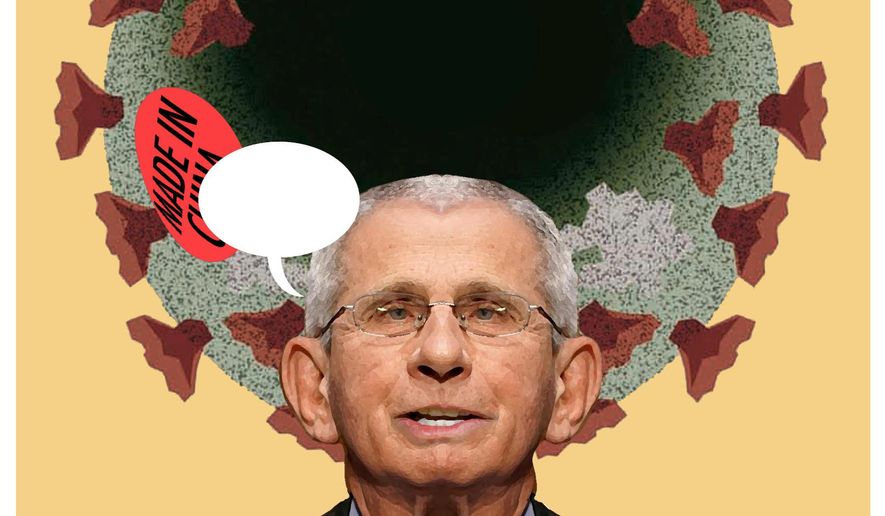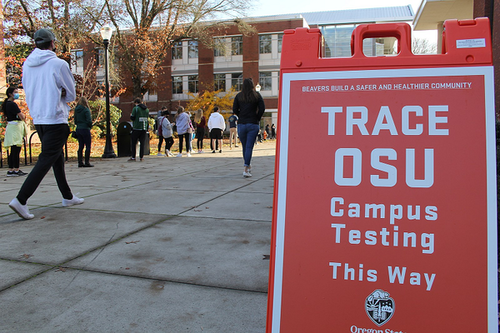 |
| Illustration by Alexander Hunter/The Washington Times |
In June 2021, a 12-story beachfront condominium in the Miami suburb of Surfside, Florida, collapsed without warning, causing the deaths of 98 people. It made headlines around the world for weeks, because the event was so rare. Mankind has been constructing multi-story buildings for thousands of years — and some are still in use in Rome, even though they were built two millenniums ago. Structural and civil engineers have a great depth of knowledge, accumulated over the eons, as to how to build things that do not fall down.
There are many other areas of human activity where the “science” is much less certain, even though the majority of “experts” might at a given time have a strong belief — which is often proved wrong.
Medical science, having made enormous advances, is still an area where some experts have much to be modest about while others deserve their bows. As in all fields, progress in medicine has been uneven. Highly skilled surgeons routinely do amazing things in repairing and reconstructing parts of the human body, including double-lung transplants and repairing the electrical systems of the heart. I had complimented a surgeon friend on what seemed to me a very difficult task, and his reply was that he was merely an extremely well-trained and experienced plumber. As I thought about his comment, I realized that, in certain ways, what he did was a logical development of the thought process and skills of those engineers who built the Roman aqueducts and water systems (parts of which still work after 20 centuries).
When it comes to understanding viruses, it is obvious that, particularly after the pandemic, much is to be learned. Government health officials like Dr. Anthony Fauci made major mistakes in giving the impression that they knew far more than they did about COVID-19 and the various vaccines and other treatments. The public was subject to endless revisionist history and denial about earlier statements (as if video recordings did not exist) about how effective the vaccines were, how many shots would be needed and at what intervals, and what side effects might occur. All of the doublespeak and mis-forecasts have caused the public to take a jaundiced view of the alleged consensus statements of the medical experts.
Good surgeons normally give patients their best estimates of the probability of various possible outcomes before the surgery. Such information is particularly important for elective or alternative surgeries. Most people can understand the uncertainty and accept the reality with maturity, even if the outcome is less than hoped for. --->READ MORE HEREWill Universities Ever Admit They Were Wrong About COVID Policy?
Former White House adviser Dr. Scott Atlas, the Robert Wesson Senior Fellow in health policy at Stanford University's Hoover Institute, wrote an excellent essay recently in the Wall Street Journal.
In it, he raises a vital question for all students, parents, faculty, and the broader public, as to how our nation's university system became, along with major media, the most aggressive proponent and distributor of medical ideology and biosecurity policy. University behavior continues to be directed by the CDC and WHO, and it appears that university administration will continue its commitment to a consensus posture toward the COVID phenomenon, until another institution that it considers authoritative tells it otherwise. That is not likely to happen.
Academia will never account for its misguided COVID policies, and it will never back out of its commitment to consensus explanations or opportunities. Indeed, these people will help accelerate the entire COVID complex. COVID is a new social engineering program, and universities will make biosecurity, including molecular engineering and tracking technology, into a permanent research activity that is worth billions per year in funding and commercialization. The link connecting business, government, and higher education has never been stronger, while China-style social credit scoring, based in part on medical and ideological compliance, is considered by the current White House administration a necessary part of the political agenda.
For universities to admit that they were wrong would not only undermine their authority and risk their research funding, but also, most of all, put their senior administration in legal jeopardy. University directors, trustees, regents, and other governance bodies are keen to avoid liability, and university legal and communications departments are working overtime to shield their institutions from blowback, including vicarious liability. --->READ MORE HEREFollow links below to relevant/related stories and resources:
NYC teachers accused of filing fake COVID vaccine cards must be returned to their jobs
Omicron COVID booster cuts hospitalization in over 65s, Israeli study finds
USA TODAY: Coronavirus Updates
WSJ: Coronavirus Live Updates
YAHOO NEWS: Coronavirus Live Updates
NEW YORK POST: Coronavirus The Latest
If you like what you see, please "Like" and/or Follow us on FACEBOOK here, GETTR here, and TWITTER here.


No comments:
Post a Comment